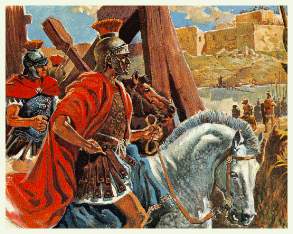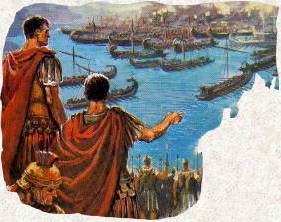The head office of Massalia by Jules César
49 AV. J.-C. - Marseilles takes party for Pompée, it is besieged by César.
César and Pompée, disputing the supreme capacity in Rome, entered in fight. Marseilles was declared for Pompée.
 |
César initially tried to attract the Marseillais with him by persuasion; not succeeding there, it besieged the city. It made build twelve galères with Arles, placed them under the command of Brutus Décimus and the command gave them |
The Roman legions, three (18 000 men approximately), were under the commands of Trébonius. César, called in Spain, left it to his lieutenants to reduce or carry the place. A naval action took place in the roads of Marseilles.
| It was not favorable to the Marseilles fleet. Pumped then sent to the help of Marseilles sixteen galères under the commands of Nasidius. The victory remained in Brutus. All the galères were run or taken; only one re-entered to the port bringing the news of the disaster. |  |
| It must be saved plundering and destruction, not with the nobility of soul of the future dictator, (he did not deprive himself to decimate Bourges or to burn Orleans during the war of Gaules), but with its political strategy because, by delivering Massalia to its soldiers, |  |